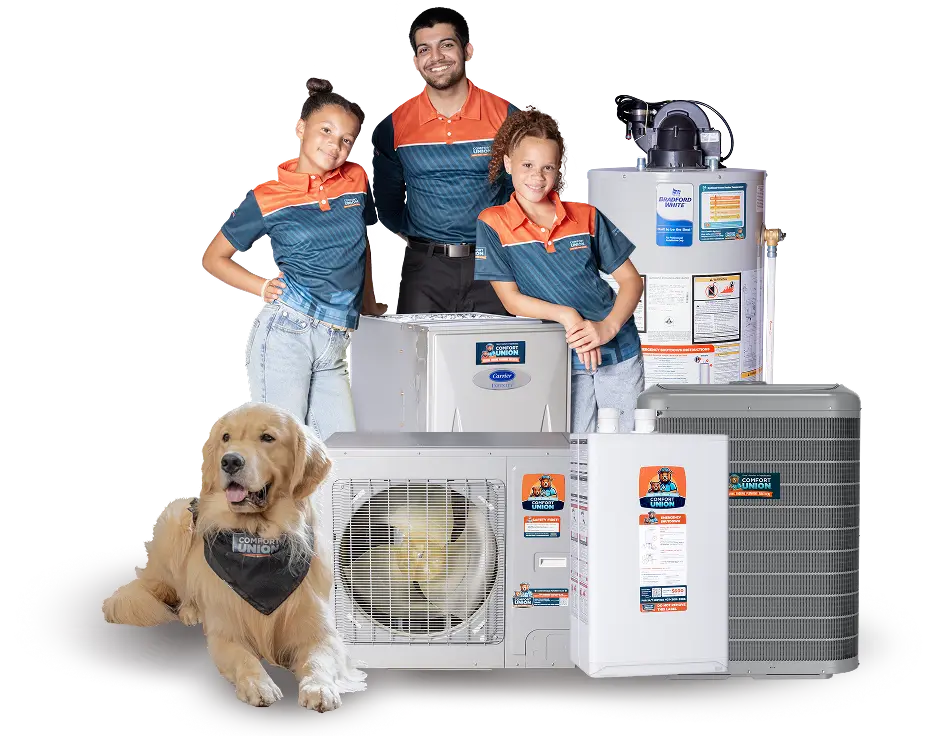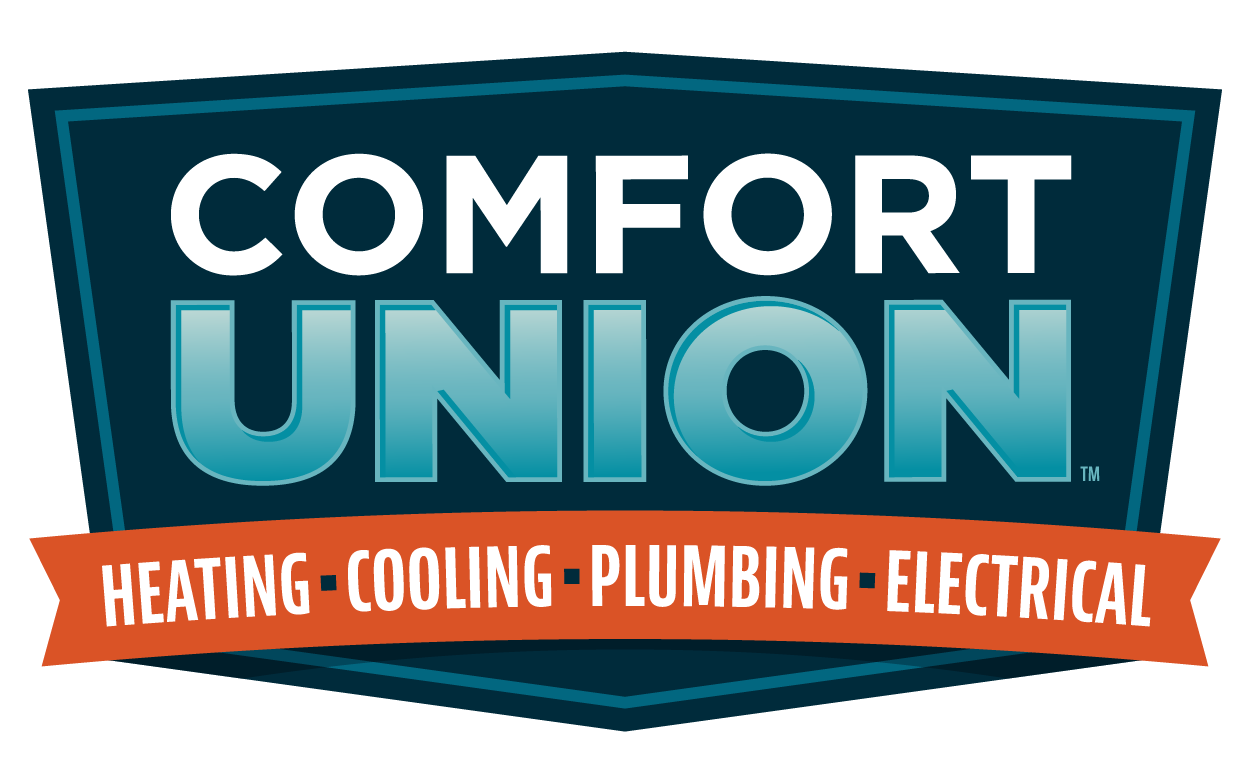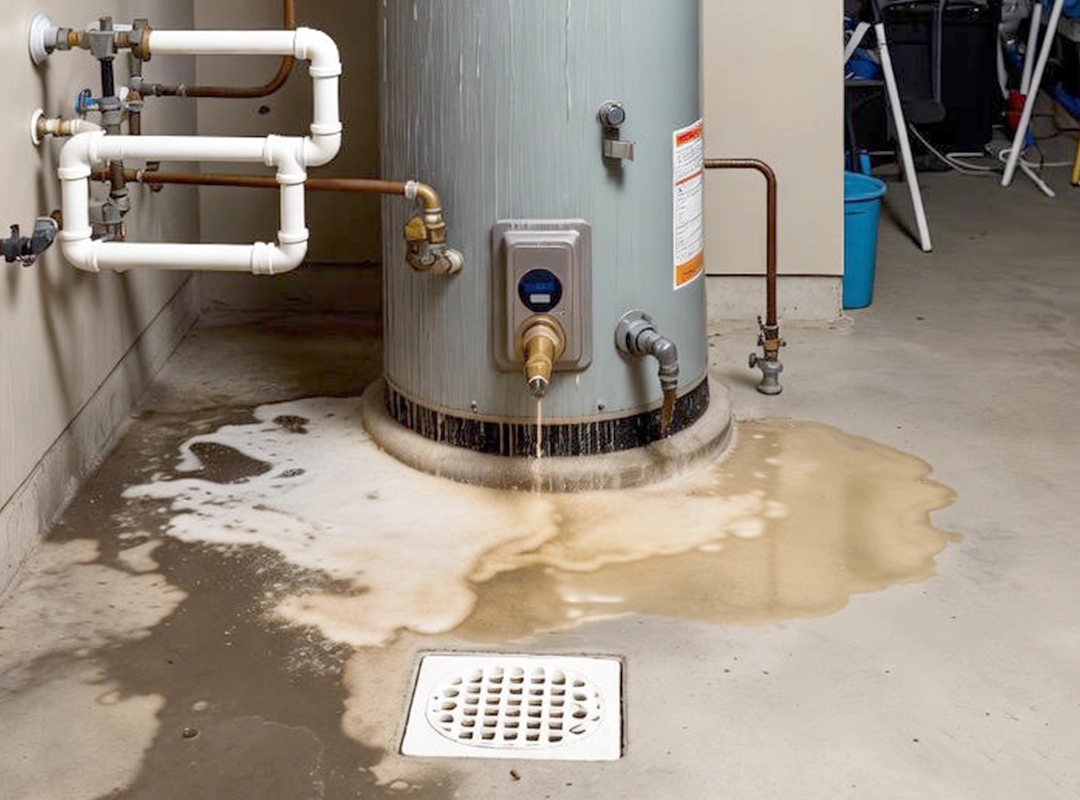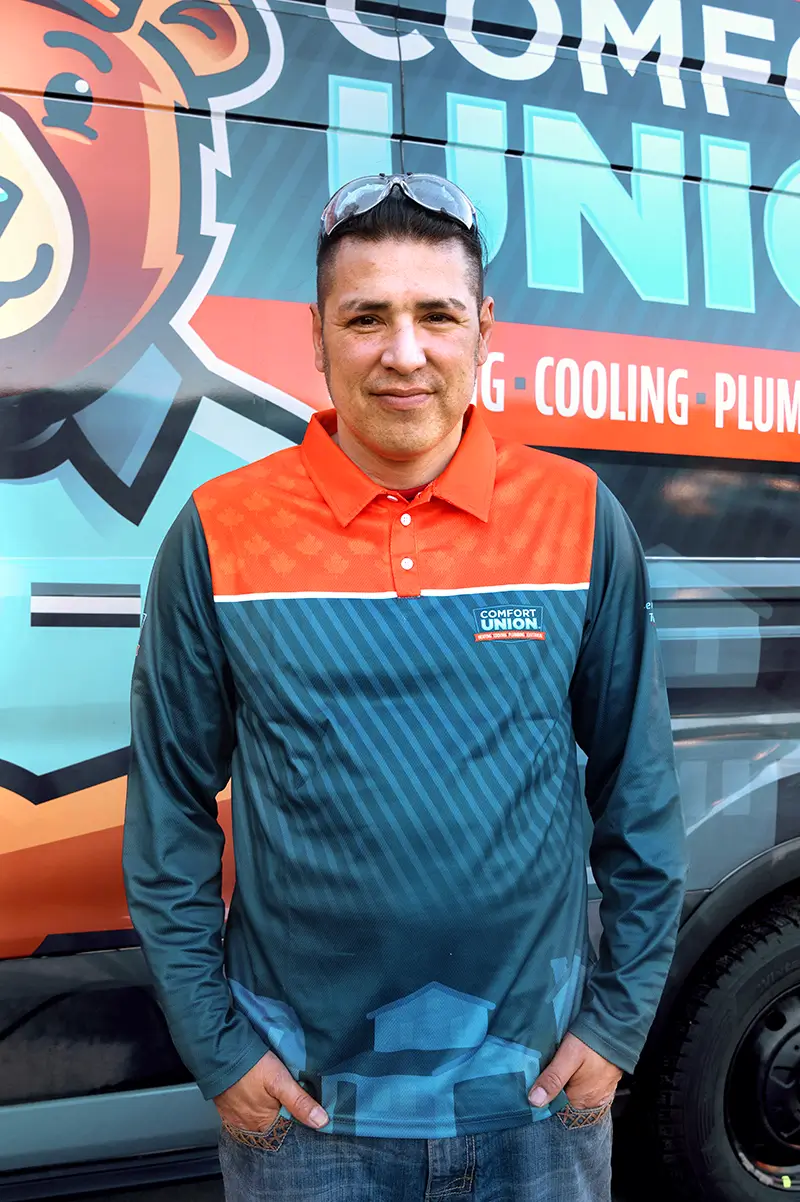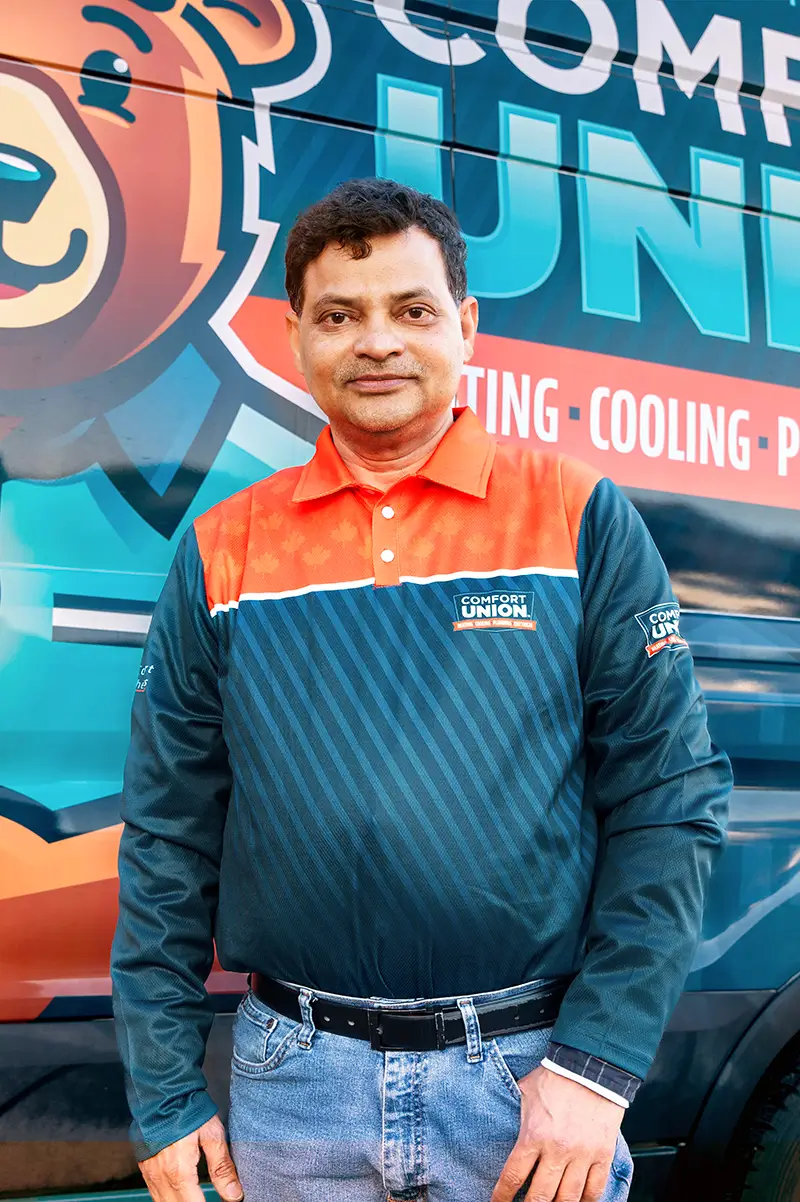If you’ve ever jumped into a Calgary shower expecting warmth and got an icy surprise instead, you know how quickly a water heater problem can ruin your day. With our city’s long, cold winters, your water heater works harder than almost anywhere else in Canada. That constant use, combined with Calgary’s mineral-rich water, means even a good system can wear down faster than expected.
Need a New Hot Water Tank?
With Flexible Financing Options
Why Water Heaters Fail Faster in Calgary
Calgary’s environment is tough on water heaters. The hard water here is full of minerals like calcium and magnesium, which settle inside your tank as sediment. Over time, this buildup creates a thick layer at the bottom that traps heat, making your system work harder and use more energy.
The city’s cold groundwater also means your heater must raise water temperatures significantly every single day, sometimes for 7 months straight. Add in Calgary’s dry air and temperature swings, and you’ve got the perfect recipe for corrosion, scale, and reduced efficiency.
That’s why it’s so important to keep an eye out for early warning signs, because they can make the difference between a simple repair and a full replacement.
What Are the Signs that Your Water Heater is Failing?
The good news? Most water heaters, no matter what brand that is, don’t fail overnight. They give off warning signs first. In this guide, we’ll walk you through the seven most common indicators your water heater may be on its way out, what each means, and how to handle it before it turns into a full-blown breakdown.
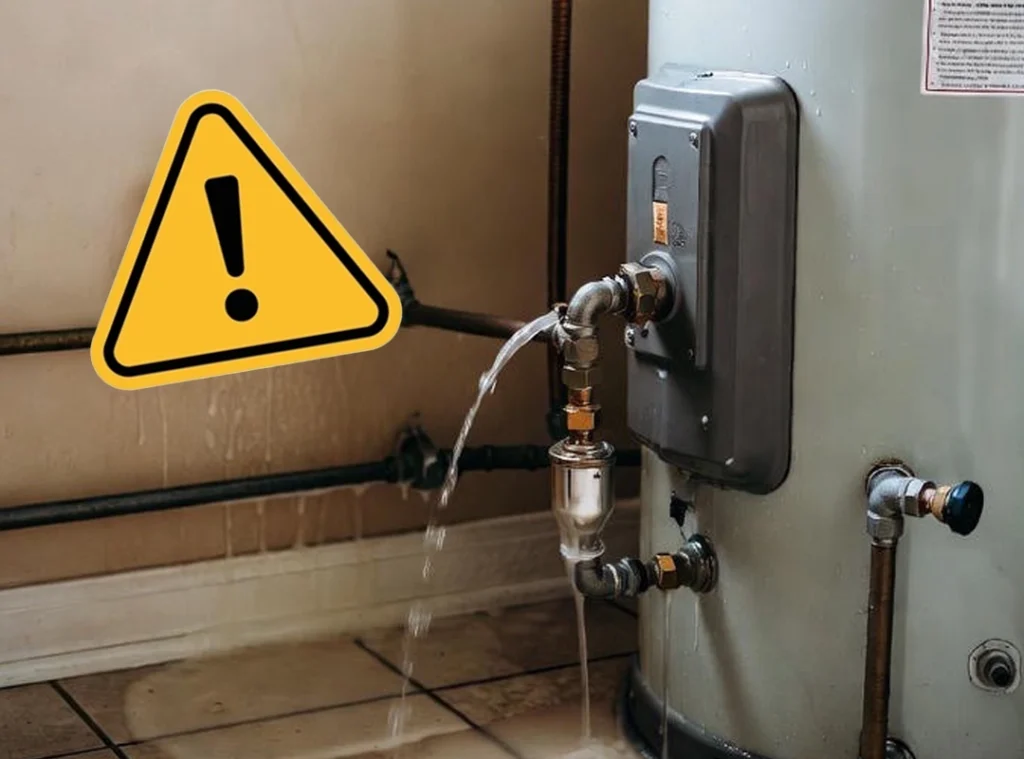
1. Inconsistent or Lukewarm Water
If your hot water suddenly runs colder than usual or fluctuates during use, it’s often the first sign of trouble.
This usually points to one of two problems: sediment buildup over your heating elements or a failing burner. In Calgary, mineral deposits form faster because of hard water. As they coat the heating surfaces, your system struggles to transfer heat efficiently.
If it takes longer for your shower to heat up or your kitchen tap never quite gets hot, your water heater is likely losing performance.
2. Rust-Colored or Cloudy Water
When rusty or murky water starts coming from your taps, it’s time to investigate. This often signals corrosion inside the tank or a deteriorating anode rod, the metal component designed to attract rust before it reaches the tank walls.
If the problem only appears in your hot water, the issue is likely your heater. But if both hot and cold taps produce rusty water, your home’s plumbing may also need inspection. Either way, it’s a clear warning that your system’s protective layer is breaking down.
3. Strange Noises (Popping or Rumbling)
If you hear rumbling, popping, or crackling from your water heater, don’t ignore it. These noises are caused by sediment buildup at the bottom of the tank.
As water heats beneath that layer of sediment, steam bubbles try to escape, creating those familiar “popping” sounds. It’s a clear indicator that your heater is working too hard, wasting energy, and increasing wear.
This issue is especially common in Calgary homes because our hard water accelerates mineral accumulation. Flushing your tank once a year can help, but if the noises persist, your tank may already be close to the end of its life.
4. Leaks Around the Base of the Tank
Even a small puddle near your water heater is a red flag. Leaks can come from loose fittings, worn gaskets, or internal corrosion.
If the water appears to be seeping from the bottom of the tank, it may indicate a crack in the metal itself, a problem that can’t be repaired. Leaking tanks should be shut down immediately to prevent water damage and safety hazards.
If you notice consistent dripping or rust streaks, it’s time to call a professional for inspection.
5. Reduced Hot Water Supply
If your household runs out of hot water faster than before, that’s another sign of internal wear. Over time, sediment buildup reduces your tank’s effective volume, meaning there’s simply less space for hot water.
This issue tends to show up first in families or multi-bathroom homes. If you used to make it through two showers and a dishwasher cycle comfortably but now run cold halfway through, your tank may be nearing failure.
6. Age of the Unit (10+ Years)
Even the best water heaters have a lifespan. In Calgary, most standard hot water tanks last 8–12 years due to heavy winter use and hard water exposure.
If your system is past the 10-year mark and showing any of the above symptoms, replacement is likely more cost-effective than repair. You can find your heater’s manufacture date on the label near the serial number, usually the first four digits.
Once your tank reaches double digits, plan ahead before you’re left without hot water in the middle of a snowstorm.
7. Rising Energy Bills or Longer Recovery Time
If your gas or electricity bill has been creeping up without explanation, your water heater could be to blame. As tanks age and fill with sediment, they require more energy to heat water to the same temperature.
You might also notice your water takes longer to reheat after heavy use — another sign of inefficiency. Left unchecked, this not only wastes energy but also shortens the lifespan of your system.
What to Do If You Notice These Signs
If one or more of these symptoms sound familiar, don’t wait for complete failure. Here’s what to do next:
First, turn off the power or gas to your water heater and inspect for visible leaks or rust. Then, contact a licensed Calgary technician for a full inspection. They can determine whether your unit can be repaired or if replacement is the smarter choice.
Comfort Union’s hot water tank repair services and tankless water heater installation options give Calgary homeowners long-lasting solutions for every budget.
When to Repair vs Replace Your Water Heater in Calgary
Not all problems mean you need a new water heater unit immediately. If your water heater is under eight years old and the issue is minor, like a faulty thermostat or valve, repair is often the best route.
However, if your tank is nearing 10 years or more, leaking, or showing multiple signs of failure, replacement is usually more practical. In Calgary, repair costs can climb quickly due to hard water damage, making new installation a better long-term investment.
How to Extend Your Water Heater’s Lifespan
You can add years to your system’s life with just a few preventive habits:
Keep the tank clean by flushing it annually. Replace the anode rod every 3–5 years. Maintain the thermostat at 49–54°C for energy efficiency. Schedule annual tune-ups before winter hits, and consider adding a whole-home water filtration system or water softener installation to minimize mineral buildup.
These small steps help your heater run smoother, heat faster, and fail less often.
FAQs Calgary Homeowners Ask About Failing Water Heaters
How long do hot water tanks last in Calgary?
Most hot water tanks in Calgary last 8–12 years, depending on maintenance and local water quality. Hard water can shorten lifespan without regular flushing.
Why is my water heater making popping sounds?
Those popping noises come from sediment buildup inside the tank. As minerals trap steam, they cause loud bursts, flushing usually fixes it.
Is rusty water dangerous?
Not immediately, but rusty water signals internal corrosion. Replace the tank soon to avoid leaks or contamination in your hot water supply.
Can I still use a leaking water heater temporarily?
No. Even small leaks can quickly turn into ruptures and flood your home. Shut off power and water, then call a technician.
How much does a replacement cost in Calgary?
A new hot water tank in Calgary typically costs $1,800–$3,500, depending on size, venting type, and installation complexity.
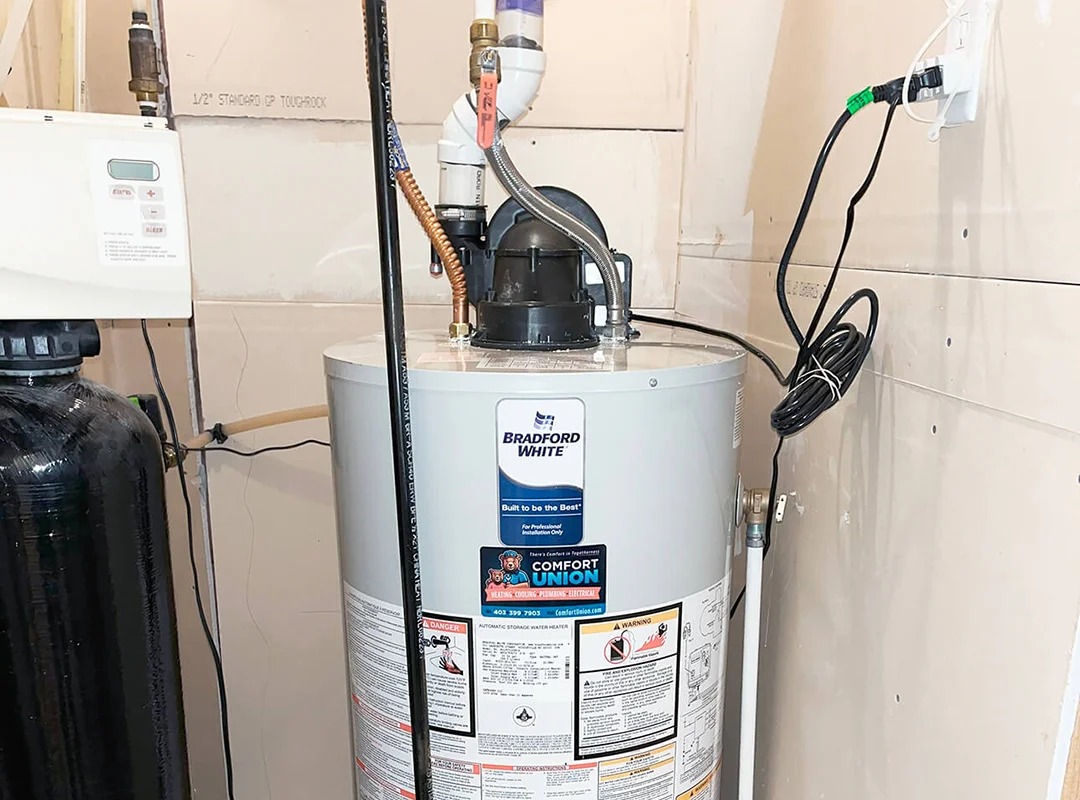
Professional hot water tank installs in Calgary with energy-efficient models, expert setup, and clean workmanship, backed by Comfort Union’s trusted team.
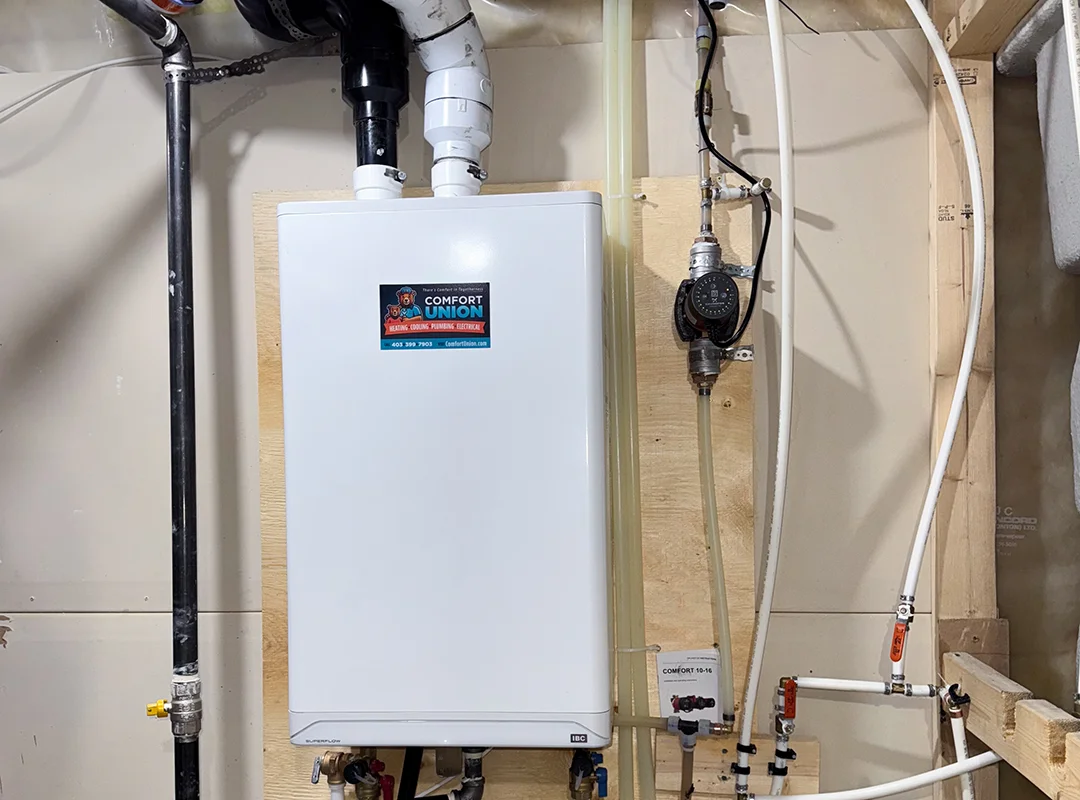
Upgrade to a tankless water heater in Calgary with 24/7 installation service, transparent pricing, and expert HVAC professionals you can count on.
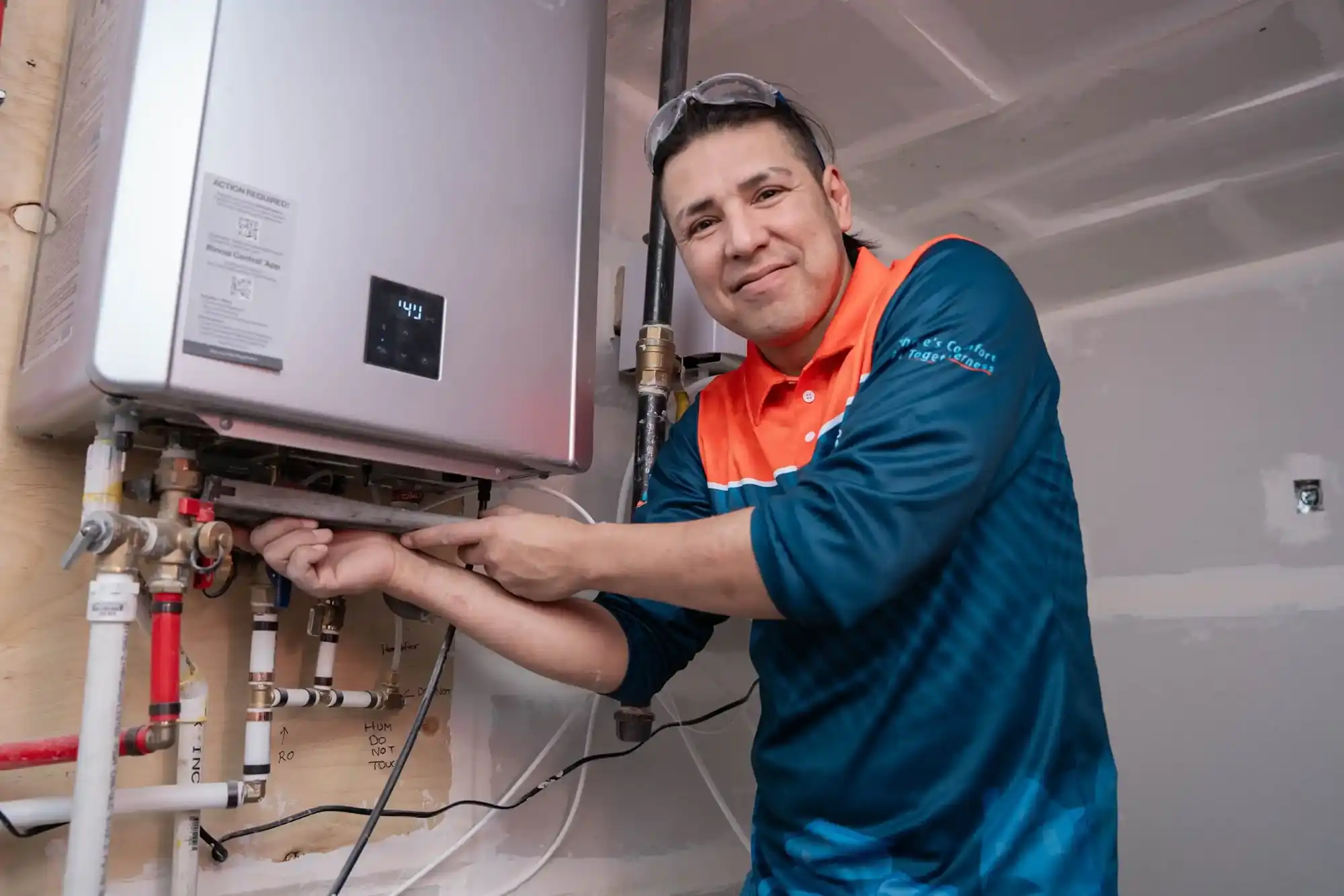
Quick and reliable tankless water heater repairs in Calgary. Get fast diagnostics, honest pricing, and long-term performance from local specialists.
